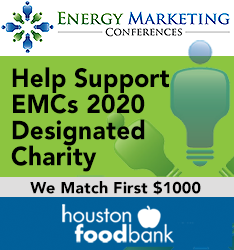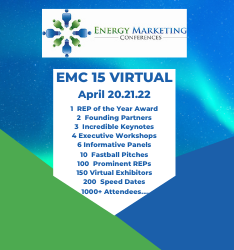|
|
|
|
|
PUC Authorizes Utilities With Choice Program To Offer Optional Renewable Natural Gas Product
The following story is brought free of charge to readers by EC Infosystems, the exclusive EDI provider of EnergyChoiceMatters.com
The California PUC adopted an order authorizing Southern California Gas Company and San Diego Gas & Electric Company to offer a voluntary pilot Renewable Natural Gas ('RNG') Tariff program ('RNG Tariff program')
Under the program, Residential and Non-residential Procurement Customers are eligible, as defined in Tariff Rule No. 1, on core rates, with the exception of customers receiving transportation-fuel service under Schedule No. G-NGV. Non-residential customers may elect either a flat Monthly Purchase Amount, or a Purchase Percentage, as defined in terms of the RNG Tariff program. Residential customers are only eligible for the Monthly Purchase Amount. Further details on eligibility for the program are below:
• Monthly Purchase Amount: For all residential customers and for nonresidential customers who elect the flat amount option, the Monthly Purchase Amount is a pre-defined dollar amount that the customer selects for the amount of RNG to purchase (e.g., $10, $25, $50 per month).
• The RNG Tariff program will initially offer three purchase amounts for all residential customers (i.e., $10, $25, $50). Should customer research or feedback identify demand for additional subscription levels or different subscription amounts, the Utilities shall be able to modify the subscription levels without Commission approval. However, customers’ monthly purchase amounts cannot be automatically switched to a higher level without their prior consent.
• RNG Purchase Percentage: For non-residential customers who elect this option, the RNG Purchase Percentage is a pre-defined percentage of usage per month that the non-residential customer selects to be renewable (i.e., 25 percent, 50 percent, 75 percent, or 100 percent).
• The RNG Tariff program will initially offer 4 four percentages for non-residential customers (i.e., 25 percent, 50 percent, 75 percent, or 100 percent). Should customer research or feedback identify demand for additional percentage levels, the Utilities shall be able to modify the subscription percentages without Commission approval. However, customers’ percentage purchase amounts cannot be automatically switched to a higher level without their prior consent.
• CARE customers are eligible to participate in the RNG Tariff program but will not receive the CARE discount on monthly RNG charges. CARE customers can participate at a purchase amount 20 percent below the lowest Non-CARE residential level (i.e., $8). The 20 percent reduction: (a) represents a 20 percent reduced pre-defined dollar amount and a commensurate 20 percent reduction in purchased RNG and (b) is a percentage consistent with the CARE discount currently applicable to gas rates. Should CARE customers want to opt-in at higher purchase amounts, they can opt-in at the Non-CARE residential levels beyond the first tier (i.e., $25 or $50).
• A minimum commitment of one year for residential CARE and non-CARE customers will be required when enrolling in the RNG Tariff program. The commitment period will begin on the first billing date following enrollment, unless enrollment is less than 15 days prior to that billing date, then service will begin on the next billing date.
• A minimum commitment of two years for non-residential customers will be required when beginning enrolling in the RNG Tariff program. The commitment period will begin on the first billing date following enrollment, unless enrollment is less than 15 days prior to that billing date, then service will begin on the next billing date.
RNG program rates shall be as follows:
1. The RNG rate charged to customers for the RNG Tariff program will be charged on a per therm basis and will consist of: (1) RNG Commodity Charge and (2) Program Charge.
2. The RNG Commodity Charge will be comprised of the Schedule G-CP 'Core Procurement Service' tariff rate less the following Schedule G-CP rate components: (1) adjustment for over or under-collection imbalance in the Core Purchase Gas Account, (2) adjustment for the GCIM reward/penalty pursuant to D.02-06-023, (3) authorized franchise fees and uncollectible expenses ('FF&Us'), and (4) authorized core brokerage fee. In addition to the net rate after considering items 1-4 described above, the following rate components will also be included to arrive at the total RNG commodity charge: (5) a premium for RNG purchases defined as the difference in the estimated monthly weighted average cost of RNG purchases (including the cost of any renewable attributes or credits that are bundled with the RNG purchases) and the estimated monthly weighted average cost of traditional natural gas purchases, (6) Renewable Natural Gas Tariff Balancing Account RNG Commodity Charge sub-account over/under-collection adjustment, (7) less the estimated value of an amount reflecting the reduction in Utilities’ cap-and-trade obligation from bringing biomethane into the Utilities’ system, (8) authorized FF&Us; and (9) authorized core brokerage fee.
3. Program Charge: The Program Charge will be comprised of (1) an amortization of administration and marketing costs associated with program oversight, program marketing collateral creation and customer outreach, and (2) an RNGTBA Program Charge sub-account over/under-collection adjustment.
4. The administration and marketing costs components of the Program Charge shall not exceed 30 percent of the RNG rate charge to customers for the RNG Tariff program. Any unrecovered administration and marketing costs shall be recorded in the RNG RNGTBA Program Charge subaccount.
5. The monthly RNG Rate will be calculated during the last week of the month and filed via a Tier 1 advice letter by the last business day of the month to be effective on the first calendar day of the following month.
At least 50 percent of the Utilities’ RNG supplies for the program demand on an annual basis must be procured from in-state or out-of-state sources that are delivered to California and meet the eligibility criteria of Pub. Util. Code Section 651(b)(3)(B).
Utilities are authorized, but not required, to enter long-term contracts that extend beyond the program duration of the RNG Tariff program. However, Utilities’ shareholders shall be responsible for the unrecovered procurement costs if the RNG Tariff program is not authorized to be extended beyond the pilot program's duration
Certain costs will be recovered from ratepayers. The PUC said that while ratemaking principles generally favor recovery costs only from program participants, allocating costs in such a fashion would make the RNG product prohibitively expensive
"In this decision we determine that there are sufficient reasons to deviate from the above principle, and that it is reasonable to allow SoCalGas to use its existing capital budget adopted in its current GRC for the IT-related costs [as further noted below]" the PUC said
Likewise, regarding SDG&E, the PUC said, "[I]f these costs are recovered only from program participants, the increased program costs would substantially increase the RNG Tariff rate and thereby potentially decrease demand and greatly reduce the potential of achieving the program’s worthwhile goals ... SDG&E estimates that its RNG rate (Commodity Charge of $1.51/Therm plus Program Charge of $1.42/Therm) excluding IT costs, would be $2.93/Therm, about eight times higher than the $.036/Therm of gas commodity charge that its non-RNG customers pay. In comparison, SoCalGas’ RNG rate (also excluding IT costs) is expected to be $1.74/Therm (Commodity Charge of $1.51/Therm plus Program Charge of $0.23/Therm). This is largely due to the fact that SDG&E’s program costs are fixed, but its customer base is much smaller comparing to SoCalGas. Adding IT costs to SDG&E’s Program Charge would significantly increase its RNG rate even above its already high level."
Specifically, funding for the computer system modifications required for SoCalGas’s CIS, websites, and the shared gas acquisition information system to accommodate the new RNG Tariff program (IT costs) shall be from its existing capital budgets approved in SoCalGas’s Test Year 2019 General Rate Case ('GRC') Decision (D.)19-09-051. SDG&E shall recover its IT costs from its 2022-2023 Attrition Year capital funds authorized in the Commission’s pending decision on SDG&E’s Petition for Modification (D.19-09-051) in Application 17-10-007 et al.
Any unamortized IT asset balances associated with the RNG Tariff program shall not be included in the incremental rate base in the Utilities’ next GRC, and the costs shall continue to be absorbed by any unused capital funding in their next GRC cycles.
If the RNG Tariff program continuation is not authorized and the program is terminated, Utilities shall not request recovery of any unrecovered wind down costs not recovered from program participants (i.e., the recorded balance in the RNGTBA as described in Section VI, infra) in their subsequent GRCs or other ratemaking proceedings. Such costs shall be recovered from the Utilities’ shareholders.
The PUC said such an approach is to ensure that the recovery of IT costs does not increase the Utilities’ customers’ rates.
Regarding marketing of the Utilities' RNG programs, the PUC said that, "The Utilities shall not use information gained from their CAT [Core Aggregation Transportation] program to market the RNG Tariff program to CTA [Core Transport Agent] customers whose contracts are nearing the end of their term."
The PUC said that the RNG Tariff program does not prevent any Core Transport Agent from marketing similar or competing products to new or existing customers.
Application 19-02-015
ADVERTISEMENT Copyright 2010-20 Energy Choice Matters. If you wish to share this story, please
email or post the website link; unauthorized copying, retransmission, or republication
prohibited.
December 18, 2020
Email This Story
Copyright 2010-20 EnergyChoiceMatters.com
Reporting by Paul Ring • ring@energychoicematters.com
NEW Jobs on RetailEnergyJobs.com:
• NEW! -- Retail Energy Account Executive -- Texas
• NEW! -- Supply and Pricing Analyst -- Retail Supplier -- DFW
• NEW! -- Lead Data Analyst
-- Retail Supplier
• NEW! -- Senior Energy Pricing Analyst
• NEW! -- Senior Energy Advisor
• NEW! -- IT Billing Project Manager
• NEW! -- IT Billing Business Analyst
• NEW! -- Financial Analyst -- Retail Supplier -- DFW
• NEW! -- Sr. Energy Intelligence Analyst
• NEW! -- Channel Partner Sales Manager -- Retail Supplier
• NEW! -- Sr. Billing Analyst -- Retail Supplier
• Director of Regulatory Affairs -- Retail Supplier -- Houston
|
|
|
|










